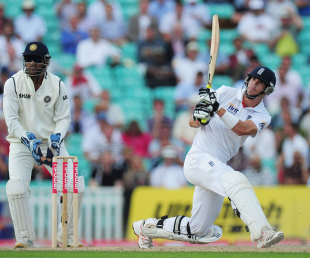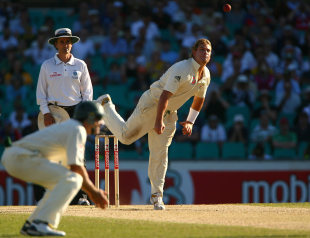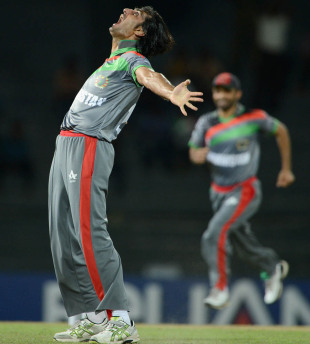| 
| The word "careless" came, not quite fairly, to become one of the defining terms of David Gower's career © PA Photos |
| Enlarge
|
|
|
|
I am currently working on a feature film script. A novelist by trade and instinct, I am finding it a testing process; a tricky exercise of discipline and concision. The opening line, for now at least, is: "You can learn everything you need to know about life from the game of cricket: the old man told me that."
The script is an adaptation of one of my own novels,City of Tiny Lights, a gumshoe I once believed would presage a whole new genre of suburban thriller. I even had a name for it: Chiswick Noir. Good, eh? Almost a decade later, my novel remains, so far as I know, its only exemplar.
The protagonist of
City of Tiny Lights is a Ugandan Indian private eye called Tommy Akhtar. He's a hard-drinking, hard-smoking hard man with a fine line in repartee. Tommy and I have little in common but cricket-mad fathers. That opening line is borrowed directly from
mine.
Dad was a much better sportsman than I ever was. (Funny, I originally completed that sentence as "than I'll ever be" but, in my forties, perhaps it's finally time to concede defeat.) He played first-class cricket for Oxford alongside the rare talent of Abbas Ali Baig and under the captaincy of the great "Tiger" Pataudi, once
taking 78 off a touring Australian attack that included the likes of Garth McKenzie and Richie Benaud. He went on to captain Berkshire and play good club cricket for Richmond for many years.
In, I think, 1987, we played side by side in a scratch team that he organised. Chasing around 250, I opened and was out to the first ball of the innings. Our batting soon collapsed and I remember Dad walking out at No. 7 or 8, saying: "I'll just have to do it myself." And he did, returning a couple of hours later with an unbeaten hundred to his name.
Afterwards, in the bar, he enjoyed his moment in the evening sun and we stayed much later than he'd planned. He then had to drive me to Taunton, you see, where my school team was playing the next day. We arrived not much before midnight and then he turned straight round and drove all the way back to London.
On the way to Somerset, he'd told me (in no little detail) how to score a century and, the next afternoon, I duly did, the first of my cricketing life (which makes it sound like many followed - let's leave it like that). I was sorry he was not there to see my innings, but I rang him from a payphone in the evening and he listened while I talked him through every run. I'm not sure what part of this story I find most revealing.
The father-son relationship expressed through sport is a complex thing. We all know the archetype of the competitive dad who loves humiliating his boy at everything from three-and-in to Connect 4. It's not quite equivalent to pinning the kid's feet together and abandoning him on a mountainside, but surely every father of sons has a touch of Laius about him. My old man was certainly no more competitive than most and would never have enjoyed my humiliation, but he never let me win either.
A couple of years later, I was captain of my school first XI. We were an average team led by an average captain, struggling for form. I had never been an expansive batsman, the strongest part of my game a kind of bloody-minded obduracy; but by the time I was 18 I'd stopped moving my feet altogether and just poked at the ball like a tramp at a rubbish bin. I'd turned into some kind of cricketing mollusc: I want to say a schoolboy Chris Tavaré, but I think Jimmy Anderson (the batsman) would be a better comparison. If any captain had set a field with nine arranged in an arc from first slip to point, I'd have never scored a run.
The climax to our season was always the match against the MCC and that year Dad was their captain. They took first knock and racked up a bucket-load of runs.
When we batted, I was determined to do well and I was at my most crustacean. I left a lot and limped (or limpeted) to 30 in about an hour and a half. Then, Dad took the ball himself. I had faced him countless times in the nets and we both knew he was no bowler, a slow-dobbing mixture of legbreaks that didn't break and in-duckers that didn't duck. He arranged his field carefully and at great length - a short leg, slip, gully and the rest in a ring. "Well," he announced to one and all, "we've got to see if they'll go for it."
I left the first delivery and played down the wrong line to the second. To the third, I launched myself up the wicket and swung my bat with, the mythology tells me, "all my might" - Oedipus the King! The King!
Unfortunately, I made no kind of contact and a thick outside edge lobbed a dolly to backward point. Dad declined celebration, like a footballer returning to a much-loved former club. As I walked past, he said: "Bad luck." Then: "This is a very character-building game."
You can learn everything you need to know about life from cricket and when Dad and I now watch we agree on much - for example, that Kevin Pietersen is a genius for our times (i.e. he has made a virtue of stupidity), and that, while Ian Bell must never be asked to bat for our lives, there'd be no better man to arrange flowers prettily at the funeral should Steve Waugh be dismissed. However, Dad's assertion that cricket is "character-building" is, if not wrong, certainly meaningless. Isn't everything character-building? Sitting in a pub, drinking your life away; sitting in a garret, writing your life away; sitting in an armchair, spectating your life away - they're all as character-building as each other. Of course what Dad meant is that cricket builds good character. But I'm not sure there's much evidence for that either. Dad will often say of an acquaintance: "Well, he's a cricketer. Must be all right." But I assume he's joking because, while I've made many friends through cricket, I've met my fair share of tossers too.
Cricket is "the gentleman's game" and the motto "it's just not cricket" spread throughout the Victorian Empire. But, for me, these just bring to mind Oscar Wilde's description of a gentleman as "one who never hurts anyone's feelings unintentionally". After all, the "gentlemen" who decided what was or wasn't cricket were a limited bunch who were, at the time, part of a culture engaged in some of the most rapacious pillaging of other people's resources the world has seen. Cricket was their game and, like the great swathes of pink across the globe, it was played by their esoteric rules. WG Grace may have been the first cricketing genius, but he was also renowned for his gamesmanship and/or cheating (depending on who you believe). And the subsequent century and a half of cricketing history is a litany of nefarious tactics, ball-tampering, match-fixing, surreptitiously effected run-outs, catches claimed and disputed, and so on.
But, perhaps the most telling example of the bizarre hypocrisies of cricket is "walking". Walking (or not) is an issue as old as the game itself. Walking is regarded as the height of gentlemanly conduct, a kind of sporting hara-kiri. And yet, let's face it, the term would never have come into existence were it not for the fact that some (including, of course, the great WG) didn't. Walking is the game's Hippocratic oath and its hypocritical taboo. I remember being given out caught behind at school. When I reached the pavilion, our cricket master chastised me for a full five minutes - cricket is a gentleman's game, he pronounced. If we don't play it like gentlemen, we may as well all give up now. Why didn't you walk? "Because I didn't hit it," I said.
So, I no longer believe that cricket builds character (in any meaningful sense). Instead, I have come to see that cricket reveals it; and isn't that a whole lot more interesting?
| | | | |
| |
| There is something about cricket at its best that sets it apart - the space and time that allow for character development, the empathy and identification between player and spectator, the struggles of an individual against the backdrop of an interwoven narrative of a wider war for ascendancy |
| |
| | |
|
All sport is narrative: its central appeal to spectators being the highs and lows, the struggles overcome, that signify a story. But most sports are plot-driven pulp, built on archetypes of heroism and villainy with little of the nuance of truly great storytelling. I don't think it's any coincidence, for example, that football lasts 90 minutes (or 120, with extra time). After all, between 90 and 120 minutes demarcates the ideal Hollywood structure: a formula in which the surprises are necessarily unsurprising since the key purpose of the medium is to reaffirm and reassure. Of course, Bradford City occasionally beat Arsenal and Verbal may or may not be Keyser Söze. But these are the exceptions that confirm the core principles of a limited-narrative medium.
Cricket is, I think, different. If most sport is driven by plot, cricket is driven by character, and the nuances to be found therein are, if not limitless, as diverse as humanity itself. This idea fascinates me.
I sometimes teach novel-writing - such is the fate of novelists of a certain stature (writers of Chiswick Noir, for example). On such courses, my opening gambit generally goes like this: "What is a story? We meet our protagonist at point A. We follow him or her through to point Z. Typically, that protagonist will be faced with a personal flaw or external problem which he or she will have to overcome in the other letters of the alphabet. Enough said."
It is a facetious little speech, but it does the job, more or less, and it allows me then to go on and explain why I consider the novel the premier narrative form.
Allow me to give, say, Middlemarch, George Eliot's masterpiece, the A-to-Z treatment by way of illustration. Dorothea, an idealistic do-gooder, makes an ill-starred marriage to a crusty, deluded intellectual in the mistaken belief that personal and social fulfillment can be found in academic pursuit. After her husband's death, she eventually marries his young cousin, giving up material security and highfalutin ideals for love and, we are left to hope, some degree of redemption.
I haven't read Middlemarch for a while but, from memory, this is an adequate summary. But, it is also ridiculously reductive. Aside from ignoring the other great strands of plot and theme, it denudes our protagonist of all the subtleties of her character that conjure our empathy even as she infuriates and delights us in equal measure.
Put simply, while the 90-minute screenplay is necessarily built on character tropes of assumed common values and expectations, the novel form affords the storyteller space to build complex people who can be by turns comic and tragic, heroic and villainous, idealistic and cynical. My point? At its best, cricket, in its revelation of character, is the sporting equivalent of the novel.
I remember watching a Test match with Dad as a kid. I can't be sure, but I want to say it was during England's home series against Pakistan in 1982. That summer, England dominated the
first Test before threatening implosion against the seemingly innocuous swing bowling of Pakistan's opening batsman, Mudassar Nazar. England lost the
second Test by ten wickets before scraping home in the
third for a series win.
I remember David Gower was particularly bamboozled by Mudassar's gentle hoopers and, after one dismissal, the commentator described his shot as "careless". This was, of course, one of three adjectives most used to characterise Gower throughout his career, the others being "elegant" and "laidback". In fact, so powerful was this critical stereotyping that Gower has become a triangulation point for all left-handed batsmen and, indeed, "careless" dismissals since.
But, on this occasion, Dad took issue. "Careless?" he said. "He's not careless. You don't get to play Test cricket if you don't care."
It's a comment that's stuck with me.
Let us briefly imagine David Gower: The Movie - create its "beat sheet", as the movie business likes to call it. The screenplay would undoubtedly identify "carelessness" as our hero's fatal flaw within the first ten pages, probably illustrated by some anecdote of schoolboy insouciance. Act One would culminate with him striking his first ball in Test cricket to the boundary, before a decline in Gower's fortunes to the Midpoint (say, the time he was dropped for the Oval Test in Ian Botham's great summer of 1981). Our hero would then fight his way back to the end of Act Two where he would ascend to the captaincy for… well, let's make it the "blackwash" series of 1984. He would show renewed mettle in defeat, which would then lead to a grand series win in India, before the glorious summer following culminates in Ashes triumph and a glut of runs for the man himself - the golden boy all grown up. This is the feature film version. I'm not suggesting it's a particularly good feature film, but it pushes the necessary buttons.
David Gower the Novel, on the other hand, would be a very different undertaking. I won't try to plot it here, but I know that we couldn't simply signify our protagonist with "carelessness". In fact, there is no need to plot the novel here since it already exists in the person of Gower himself. And it is a subtle tale that can only be précised to 117 matches, 8231 runs at an average of 44.25 - greatness by anyone's standards. And that is why Dad took offence to that single careless adjective.
All spectators are, of course, guilty of careless description. I have already been so myself, characterising Ian Bell as a flower-arranger. So, by way of contrition, I will use a moment from Bell's career as one of my examples for the comparison of two sports instead of two narrative media.
In 2008, John Terry, Chelsea captain, stepped up to take a penalty in the shoot-out which could win his club the Champions League for the first time. As he struck the ball, he slipped and sent his shot wide. It was a moment of high sporting drama, certainly; if you were a Chelsea fan, some tragedy; if you were one of Terry's many detractors, an instant of glorious schadenfreude. But I challenge anyone to claim it revealed much meaningful about his character. No doubt in Chelsea-hating pubs across the country, JT was derided as a "bottler", but does that even approximate to a truth we believe? The fact is he missed a penalty kick he'd have scored nine times out of ten. He slipped. Shit happens.
Now, let us look at Ian Bell's dismissal in the first innings of the first Test against India
in Ahmedabad in 2012. India had scored 521 and England were struggling at 69 for 4 when Bell walked to the wicket. Then, he tried to hit the very first delivery he received back over the bowler's head to the boundary and spooned a simple catch to mid-off. I'm sure commentators used the word "careless", though I don't actually remember the invocation of Gower. It was an extraordinary shot, no doubt, but it also seemed more than that - in some way a summation of Bell as cricketer and man. In no particular order, Bell was batting at No. 6, a kind of ongoing reminder of a perceived weakness - we all know (and he knows) that he has the talent and technique to bat at three, but isn't trusted to do so. We all know his reputation for scoring easy runs - even the game in which he hit his
199 against South Africa in 2008 eventually petered out into a high-scoring draw, while his
double-century against India in 2011 was milked from a beaten team at the end of a long summer. The former young maestro was one of three senior pros in the England top six, the go-to men to bat their team out of a crisis. His place in the team was under pressure from the next generation of tyros and he was due to return home after the game for the birth of his first child. Lastly, we all know that cricket is a game in which you have to trust your judgement and, to Bell's credit, he trusted his. Unfortunately, that judgement was terribly flawed, but would we have preferred him to poke forward nervously and nick to the keeper? Perhaps we would. The incident reminded me of something else I tell would-be novelists: when you're writing well, you can reveal more about a character in one moment than in 20 pages of exposition.
| 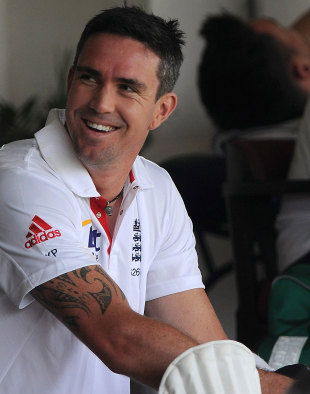
| Anyone see Anna Karenina in this picture? © Getty Images |
| Enlarge
|
|
|
Of course I recognise that the oppositions I describe between cricket and other sports, and the novel and other narrative media, are false. There are plenty of unremarkable cricket matches and careers, plenty of epic examples from any other sport you can think of; innumerable bad, unsophisticated novels and many great films of considerable complexity. Nonetheless, I would maintain that the observations underlying these false oppositions ring true. There is something about cricket at its best that sets it apart - the space and time that allow for character development, the empathy and identification between player and spectator, the struggles of an individual against the backdrop of an interwoven narrative of a wider war for ascendancy (or, if you will, a "team game"). There is something about the novel form which, at its best, is exactly the same. Or, to put it another way, in the words of Tommy Akhtar, private eye, in the last scene of my film: "The Yanks will never get cricket. They'll never understand a five-day Test match that ends in a draw. They like victory and defeat. But victory and defeat are generally nursery rhymes, while a draw can be epic." Cricket, like a novel, like life, often ends in moral stalemate. And it's all the better for it.
If describing Ian Bell as a florist smacks of carelessness, then describing KP as some kind of idiot savant is unfortunate (see the KP Genius Twitter account) so, by way of conclusion, let me rectify that here. After all, the idea for this little essay came about while re-reading Anna Karenina against the backdrop of Pietersen's recent conflict with his team-mates, his captain, his coach, and the ECB.
Pietersen was, I began to consider, rather like poor, doomed Anna. He was regarded as self-serving, his judgement fatally flawed, seemingly hell-bent on alienating himself from his peers. He was characterised as a mercenary, and certainly he had no desire to live in anything but the considerable style to which he was accustomed. But, like Anna, his true tragedy was an ill-starred love: a love that could not be condoned by polite society, but would not be contained by its strictures either. But who did KP love?
As I read on, I slowly came to conclude that KP also resembled Count Vronsky; as Leo Tolstoy describes him, "a perfect specimen of Pietermaritzburg's [sorry, "Petersburg's'] gilded youth". Vronsky is a brave soldier raised for derring-do and impressive in the regulated environment of his regiment. But he is a man of limited imagination whose bravery derives not from moral courage but the whims of his own desires. Indeed, when Vronsky resigns his commission, it is not from principle but to pursue the self-gratification of his love for Anna, a love that can never fulfill either of them.
And so it dawned on me: KP is neither Anna nor Vronsky, he is both of them - the cricketing manifestation of Tolstoy's epic of doomed love.
Is this a step too far? Certainly. But fun, nonetheless…
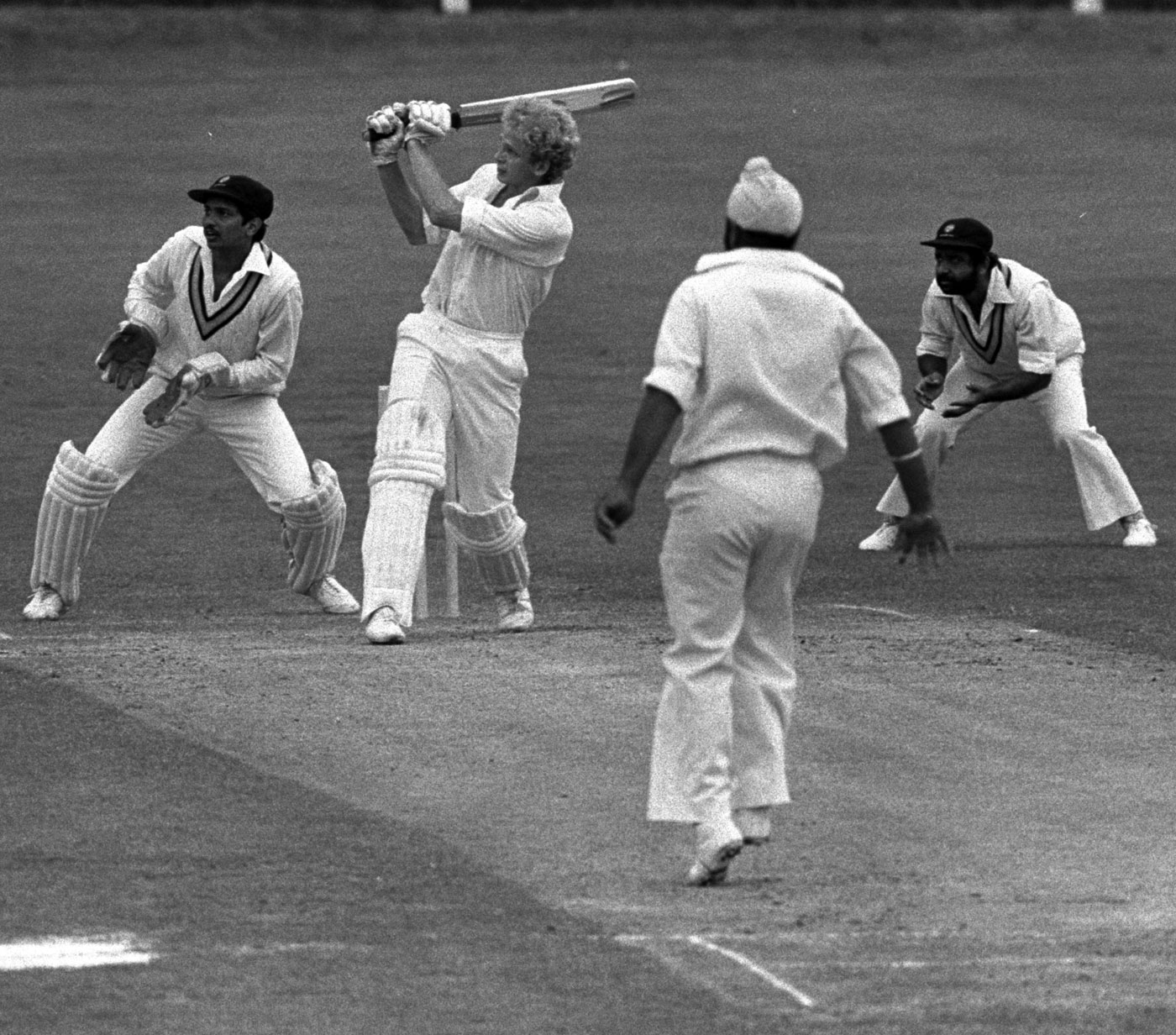

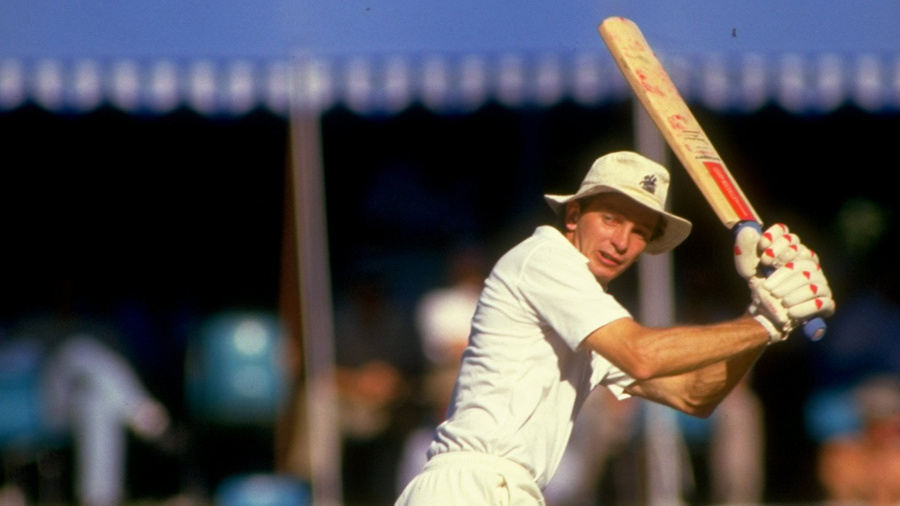 David Gower: poise, fragility and ineffable beauty © Getty Images
David Gower: poise, fragility and ineffable beauty © Getty Images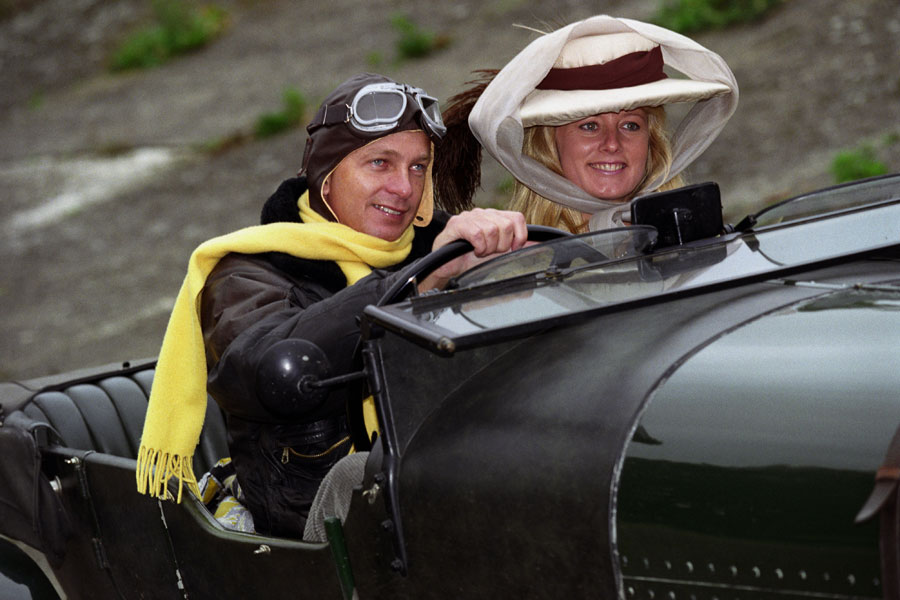 Gower, seen here with wife Thorunn, was at his mesmerising best against the Australians in 1985 © PA Photos
Gower, seen here with wife Thorunn, was at his mesmerising best against the Australians in 1985 © PA Photos